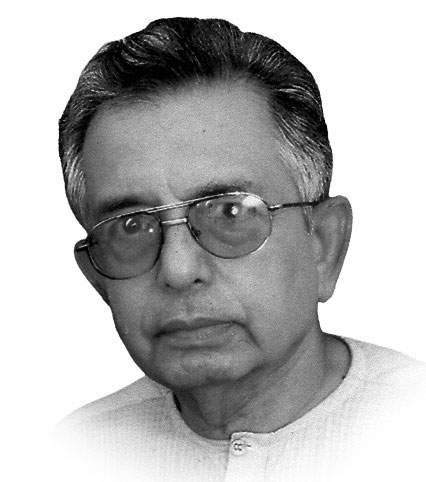The fall of Dhaka
WITH 16 December marking half a century since the fall of Dhaka, one expects a flurry of articles about our former eastern wing and one of these is ‘East Pakistan to BD: Lesser told chronicles’ by retired Gen Raza Muhammad Khan, published on 10 December.
Surprisingly, the writer confines the tragedy mainly to events occurring during four years ending 1971, naming its causes as treasonous politics, disunity and tribulation, particularly in East Pakistan, while ignoring incubation period spanning two decades altogether.
We know that even the wisest persons make mistakes at times.However, sagacity demands that we analyze such occurrences, draw conclusions and learn lessons to avoid such pitfalls in future.
But then analysis would lead us to right conclusions only if it is done honestly and impartially.
The other essential requirement is to do the analysis in sufficient depth.And that means not just looking at things superficially but probing issues deeply and unearthing the real causes that gave rise to the sentiments which caused those incidents.
Unfortunately, the writer has ignored the circumstances during the first twenty years of Pakistan which created a sense of deprivation among the inhabitants of the more populous eastern wing.
This included the decade-long rule of Ayub Khan which further alienated East Pakistanis.
And then Ayub Khan’s successor and hand-picked army chief Gen Yahya Khan’s repression of Bengalis took things to a point of no return, finally causing dismemberment of Pakistan in the most shameful manner.
Surprisingly, while the writer has criticized India, the Soviet Union, UNSC, UK, France, and Pakistani politicians, including Shaikh Mujibur Rehman and Zulfiqar Ali Bhutto, the main characters in the sordid drama; the self-promoted Field Marshal Ayub Khan, his hand-picked commander-in-chief and successor General Yahya Khan and Lt Gen Amir Abdullah Khan (Tiger) Niazi feature nowhere in the article.
The above reminds of a television comedy programme I had seen long time back. According to the programme a globe-trotting historian reached a country where the king of the land was very impressed.
The king welcomed him and asked him to stay in the country and write its history. And then, one day, the King happened to be in the vicinity and decided to pay him a visit.
Being a historian, the man was busy writing and the King asked him as to what he was writing whereupon he informed the King that he was writing the history of his country.
At that, the King was taken aback and exclaimed “How come, you are writing this country’s history on your own?
” And the sense of shock and surprise expressed by the king was not entirely misplaced because it was common during those medieval times – as also in the present-day Pakistan – to add, delete or select facts in a way that helps give a certain complexion to history, with facts bearing little relevance.
For a start, the Bengalis were not traitors like they are generally made out to be.
During my more than two decades stay abroad, I have come into contact with many Bengalis who I found to be open-minded, with many of them expressing remorse over the treatment meted out to West Pakistanis during the troubled years.
However, I did not find many West Pakistanis who would care to admit that their people, or their government, did anything wrong ever.
And when I look back, I can see that Bengalis were not given their due rights in civilian and military positions or in the division of the national resources.
With East Pakistan being more populous, they wanted the capital to be in the eastern wing.
But as a mark of respect for Quaid-i-Azam, they accepted Karachi as the country’s capital.
However, when Ayub Khan imposed first Martial Law and grabbed power he decided to shift the capital away from Karachi, Bengalis again raised their demand but were over-ruled.
I remember some Bengali remarked about smelling jute on Islamabad roads. Moreover, as compared to cold weather of Islamabad, Bengalis were far more comfortable in the mild climate of Karachi.
Also, nearly all the development work — including the construction of dams — was done in the western wing.
And it was not that Gen. Yahya Khan did not get wise counsel. There was commander of the armed forces in East Pakistan, Lt Gen Sahabzada Yaqub Ali Khan, a rounded-off person who got on very well with the East Pakistani military and civilian officials and became quite a popular Governor of East Pakistan later.
Together with commander-in-chief of the Pakistan navy, Vice Admiral S M Ahsan, he had strongly advised Yahya Khan that the use of force against Bengalis will be counter-productive and will not work.
Still, instead of pressuring Zulfiqar Ali Bhutto to accept the overwhelming mandate of Sheikh Mujibur Rahman — who had bagged nearly twice as many votes as Bhutto did – Yahya Khan launched full-scale military operation in Bengal and the rest is history.
More than seven decades after independence, China, a late starter, is a super power competing with the US apart from being its big lender.
And our former eastern wing, now Bangladesh, which we loathed as a burden on us, is ahead of us economically, with foreign exchange reserves more than double of us, while we are managing merely to survive and that, too, by borrowing more and more money, and not for productive purposes which will generate additional income, but just to repay increasing loan and interest instalments.
At least After reaching this hopeless stage, we should open our eyes and see things like they really are, or were, instead of continuing to live in our make-believe world.
— The writer is senior political analyst based in Karachi.









